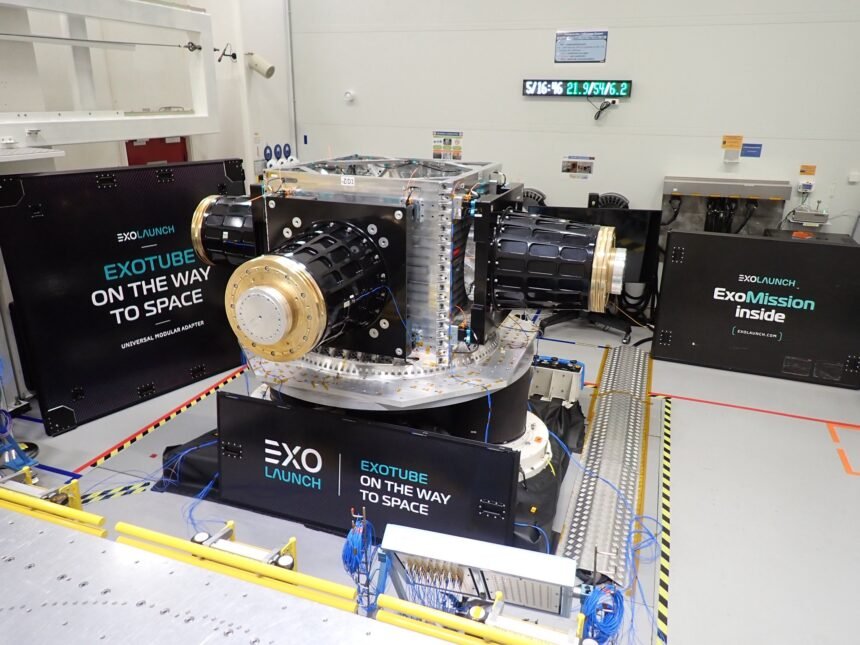If Monopoly made a rocket themed board game, Exolaunch would have a hotel on every space.
The Berlin-based launch integrator announced a partnership this week with Orbex to sell satellite operators a ride on the UK launcher’s Prime and Proxima rockets.
The partnership builds up Exolaunch’s capacity, and continues the company’s worldwide expansion. It also comes well ahead of Orbex’s first launch in 2026.
“I would not say that we go out [and] buy up as much capacity as we can—or is available. I would instead say we want to provide as much choice to our customers as the market will allow,” Exolaunch CEO Robert Sproles told Payload. “When [new rockets] are ready for launch—when their vehicles are proven—we want to be able to instantly turn that on and provide that access to our customers.”
Everything, everywhere: Exolaunch’s vision for its future is centered around this idea of choice. This year, Exolaunch opened offices in Toulouse, France, as well as Tokyo, to take on more business in the European and Asian markets. The company also has a long history of signing partnerships with companies providing new launchers, as the rockets come online. Suffice it to say: If you’re building an orbital rocket, expect a call from Exolaunch.
- In June, Exolaunch announced it was working with South Korean launcher INNOSPACE ahead of the Asian company’s first commercial launch expected this month—it’s unclear, however, if Exolaunch will be on board that flight.
- In May 2024, Exolaunch partnered with Spain’s PLD Space to fly customer satellites onboard PLD’s Miura 5 rocket, which is expected to fly its inaugural commercial flight in 2026.
- In 2020, Exolaunch began working with Germany’s Rocket Factory Augsburg, when RFA was planning its first flight for 2022.
Exolaunch is also upgrading its hardware to integrate a wider pool of satellites onto these launchers—specifically, the biggies. The partnership with Orbex includes the use of Exolaunch’s EXOtube, which is a scalable launch platform designed to handle everything from constellations of smallsats and cubesats, to 1,000 kg-microsats.
The company is also developing CarboNIX NEO and Quadro Versa, which are two new platforms also built to handle satellites up to 1,000 kg. These two systems are expected to fly for the first time this year.
Mutual benefit: Exolaunch’s strategy to build relationships with launchers before they take their first flights off the planet is intentional, as the integrator sees itself as a helping hand for these new entrants to the commercial market.
“Our team has more launch experience than many of the new launchers have, so we truly are bringing experience on what customers expect when they approach [a new] vehicle. And we’re advocating for our customers, so we’re able to bring that perspective to the new launchers,” Sproles said.
The idea is to ensure that new launchers can onboard their client satellites quickly and efficiently, and to reduce the integration speed bumps on the road to regular flights. As the go-between for satellite operators and launch providers, Exolaunch is creating a marketplace for orbital access that ultimately aims to reduce Europe’s barriers to space.











